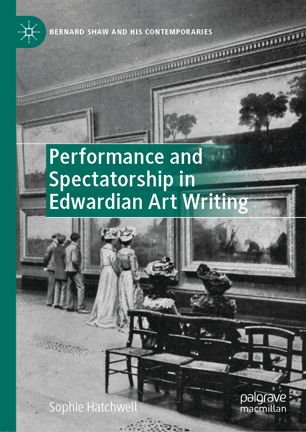

Most ebook files are in PDF format, so you can easily read them using various software such as Foxit Reader or directly on the Google Chrome browser.
Some ebook files are released by publishers in other formats such as .awz, .mobi, .epub, .fb2, etc. You may need to install specific software to read these formats on mobile/PC, such as Calibre.
Please read the tutorial at this link: https://ebookbell.com/faq
We offer FREE conversion to the popular formats you request; however, this may take some time. Therefore, right after payment, please email us, and we will try to provide the service as quickly as possible.
For some exceptional file formats or broken links (if any), please refrain from opening any disputes. Instead, email us first, and we will try to assist within a maximum of 6 hours.
EbookBell Team

5.0
90 reviewsThis book explores how Edwardian art writing shaped and narrated embodied, performative forms of aesthetic spectatorship. It argues that we need to expand the range of texts we think of as art writing, and features a diverse array of critical and fictional works, often including texts that are otherwise absent from art-historical study. Multi-disciplinary in scope, this book proposes a methodology for analyzing the aesthetic encounter within and through art writing, adapting and reworking a form of phenomenological-semiotic analysis found conventionally in performance studies. It focuses on moments where theories of spectatorship meet practice, moving between the varied spaces of Edwardian art viewing, from the critical text, to the lecture hall, the West End theatre and gallery, middle-class home, and fictional novel. It contributes to a rethinking of Edwardian culture by exploring the intriguing heterogeneity and self-consciousness of viewing practices in a period more commonly associated with the emergence of formalism.